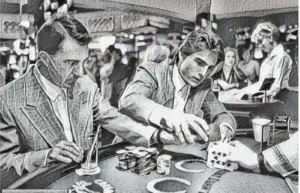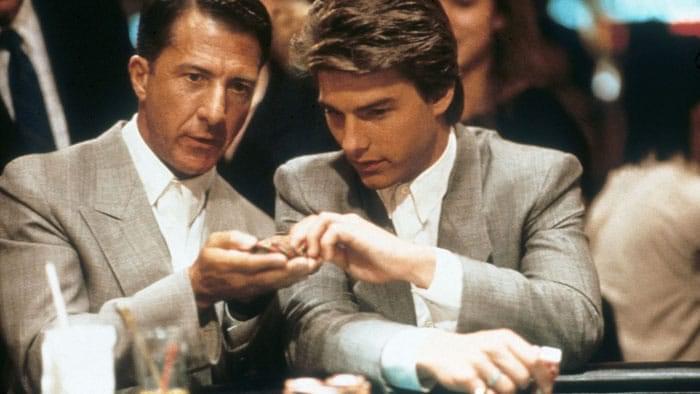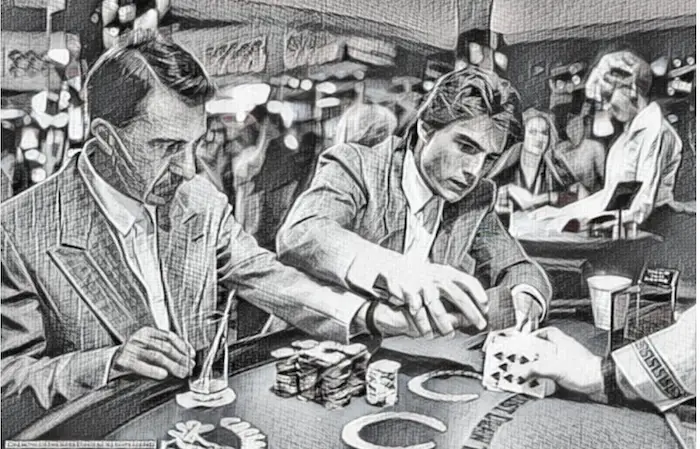
Over 30 years since its release, Rain Man still has a tangible cultural impact, and its subject matter still shapes the public’s perception. More than 30 years ago, when “Rain Man” was initially released, it caused quite a stir. Audiences were captivated, and society was fundamentally altered by the film’s potent tale, novel subject matter, and astonishing performances, particularly that of Dustin Hoffman as autistic genius Raymond Babbitt.
A Review of Rain Man and Its Cultural Impact
The film “Rain Man” became a cultural icon and helped raise awareness of autism to new heights.
Even now, more than three decades after its release, the film continues to have an influence. To understand why we must first examine its narrative, then its story’s foundation, and finally its enduring cultural impact.

Plot Summary
Los Angeles yuppie Charlie Babbitt is in over his head with debt when he finds out that his father, from whom he was estranged, has died, and left $3 million to an anonymous trustee, leaving Charlie with just an old car, and some rose bushes. He learns that his older brother Raymond, whom he had no idea existed, is being cared for in a mental facility with the inheritance money.
Raymond is autistic, and he follows rigorous routines.
Although he has an excellent memory, he seldom displays emotion until he is in trouble. Charlie gets Raymond to leave the asylum and check into a hotel for the night. In an effort to get his hands on the money, Charlie decides to bring his brother to L.A. and try to adopt him.
Once Raymond adamantly refuses to take a flight to Los Angeles, Charlie decides to drive there. They can’t move as quickly since Raymond has established habits like watching a specific TV show every day, avoiding travel when it’s raining, and going to bed at 11:00 p.m.
Adding further complications, after witnessing an auto accident, Raymond now also dislikes driving on the highway. Charlie finds out that Raymond can instantly solve complex problems and count hundreds of items.
After passing through Las Vegas, he and Raymond return to Caesars Palace on the Strip and intend to win money at the casino using Raymond’s ability to count cards while playing blackjack. Charlie wins $86,000 to pay off his debts.
Upon returning to Los Angeles and visiting a court-appointed psychiatrist, Charlie understands that he cannot care for his brother in the way he needs it, so he allows him to return with a caregiver from his hospital while promising to visit in two weeks.

Somewhat True Story
Although “Rain Man” is not based on a true tale, the main character, Raymond, was influenced by various people from real life, most notably Kim Peek. While writing the film, Barry Morrow met Kim and was so impressed by his memory that he based one of the two main characters on him. Kim, who was born in 1951, shot to stardom after the movie was released. The breadth and depth of his knowledge were legendary.
He could read a whole book in a few minutes and retain every word. But he had difficulty with social relationships, which may have been the outcome of mental impairment. Although he was first identified as having autism spectrum disorder, it is now believed that he has FG syndrome. On December 19, 2009, at the age of 58, Kim had a fatal heart attack and died suddenly.
Culturally Impactful
The cultural impact of “Rain Man” on understanding autism cannot be overstated. But if it’s allowed to grow too large and dominate for too long, any influence, no matter how kind or well-meaning, may become stifling.
Until now, “Rain Man” has been the only box office smash starring an autistic character in Hollywood. There hasn’t been another movie or TV program with an autistic protagonist that has done as well financially or critically as “Rain Man” has in the 30 years since its premiere.
Film is more influential than any other art form in shaping public perceptions of culture because of its accessibility to a wide audience. In the same way that “One Flew Over the Cuckoo’s Nest” influenced the public’s understanding of mental hospitals, “Rain Man” did the same for autism. Raymond Babbitt was the embodiment of autism itself, rather than just one manifestation of the disorder.

Conclusion
While the movie is superbly directed by Barry Levinson, perfectly acted by Dustin Hoffman and Tom Cruise, and masterfully written by Barry Morrow and Ron Bass, the movie’s most important cultural impact is that it brings into the public consciousness a segment of the population that might have otherwise continued to be invisible for many more years.
It’s not just that, however. “Rain Man” still resonates with audiences to this day because it’s essentially a story of acceptance. Charlie is obsessed with control; it almost leads him to ruin, while his brother Raymond teaches him to accept that certain things in life cannot be changed and that he is powerless over other people.





